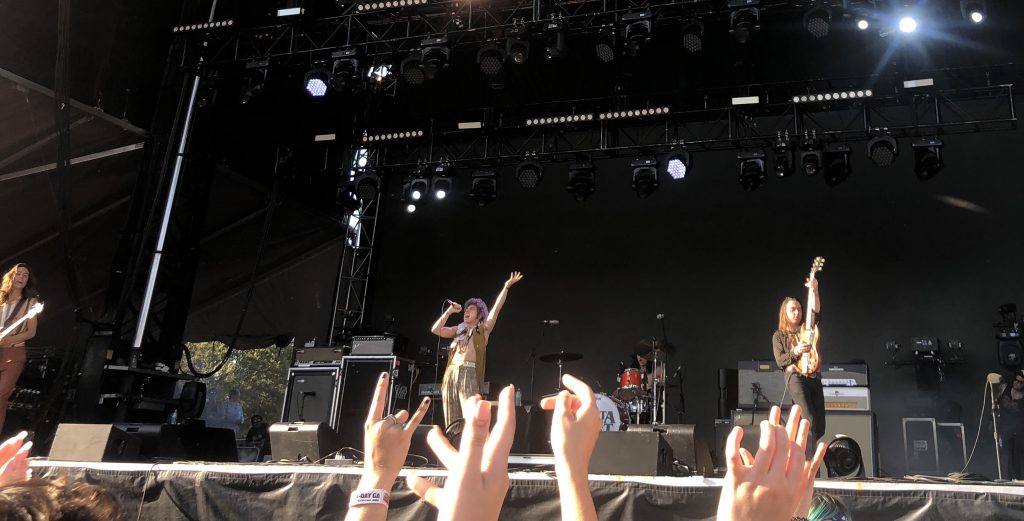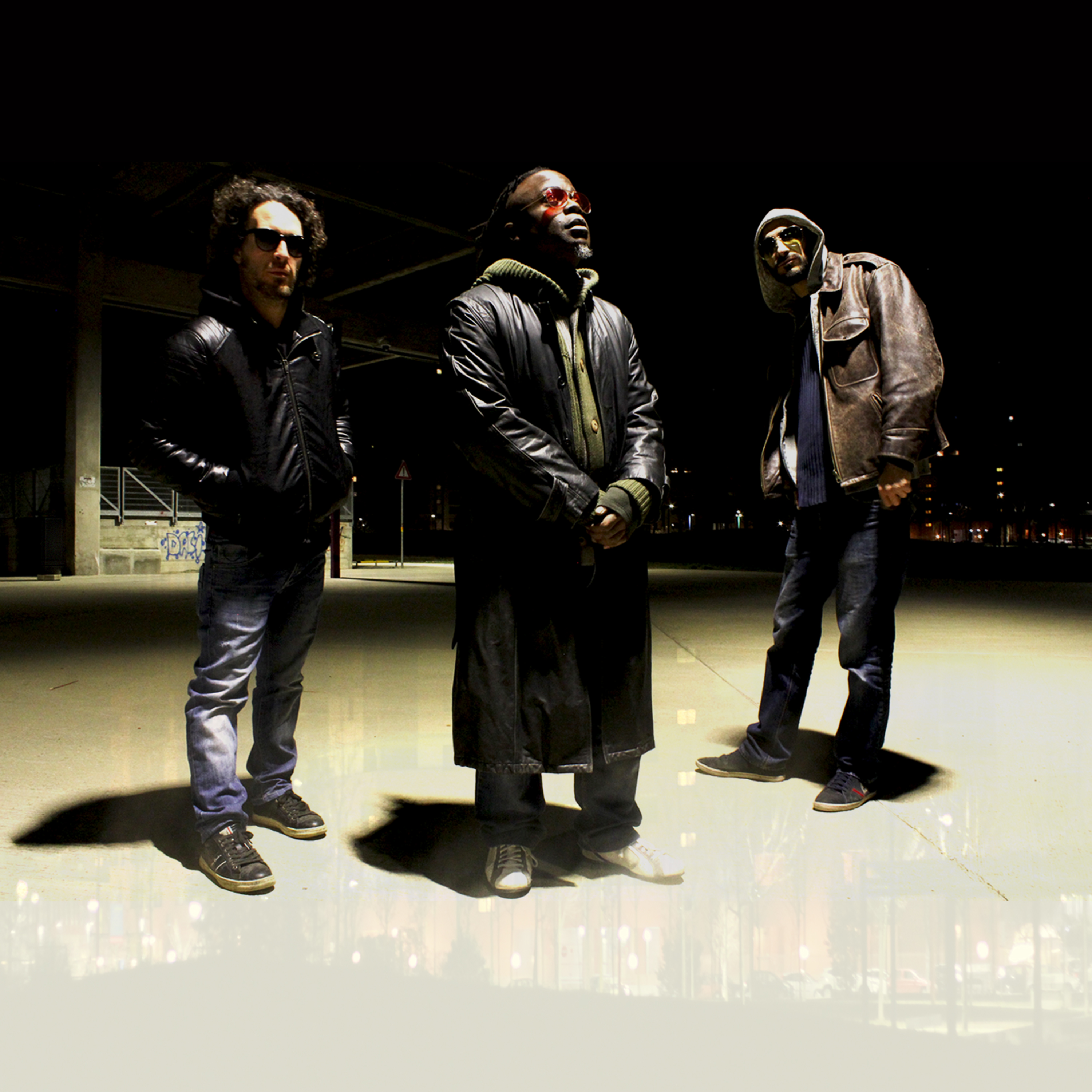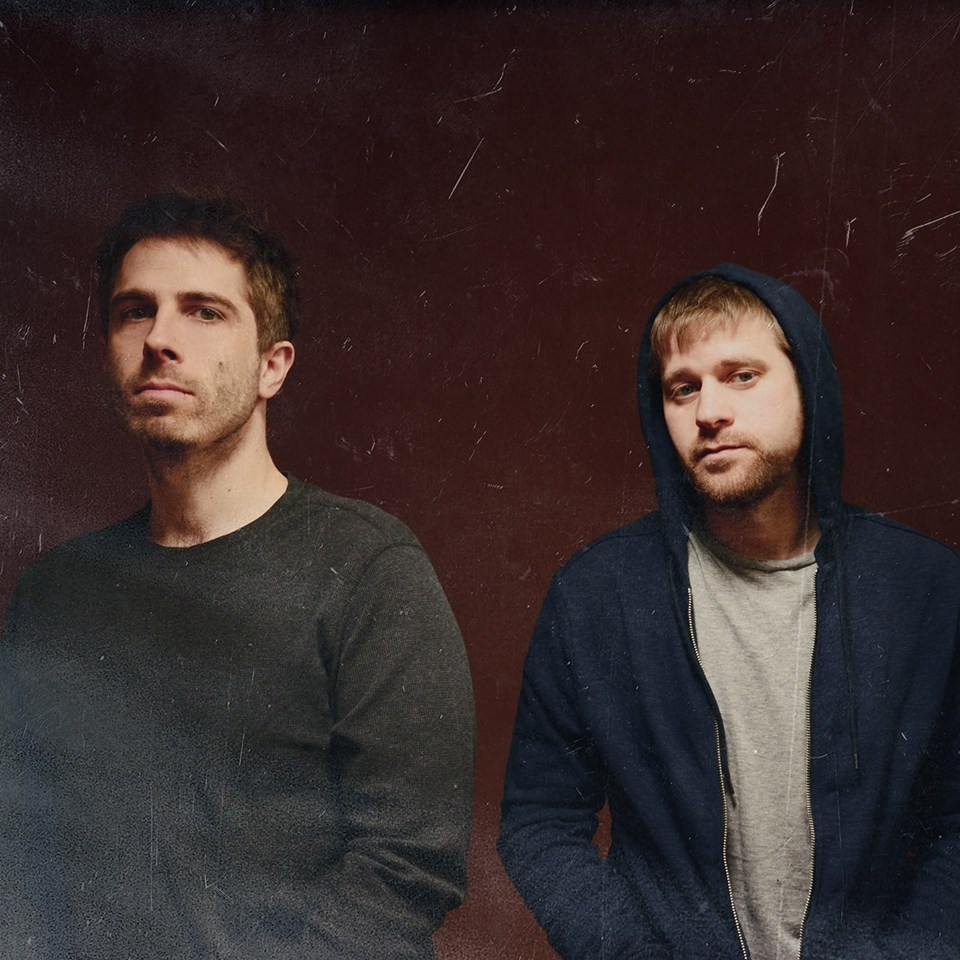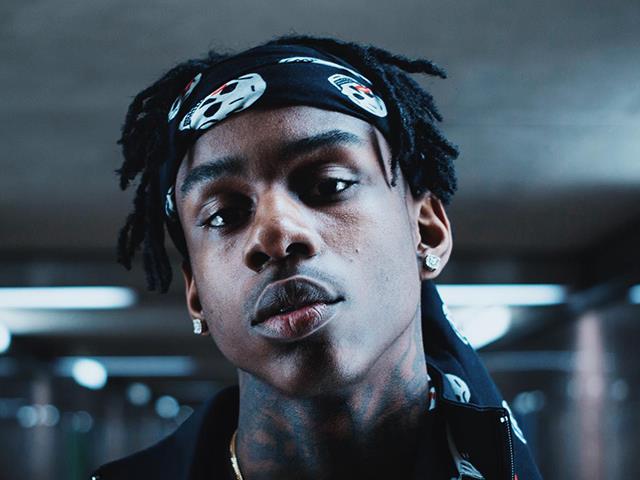After the Revelry: The Predicament of Greta Van Fleet

I tried to do Sam Kiszka a favor when we spoke on the phone. I decided I wouldn’t mention Led Zeppelin at all during our interview.
Shocking, right?
But the more I tried to avoid it, the more ominous questions hung in the air like the ghosts of classic rock’s past: Do you actually like the Zep comparisons? Is it starting to get old, or is it the utmost of compliments? Are you afraid it might undermine the musical message that Greta Van Fleet is trying to put out? Have you guys gone drinking with Robert Plant yet, or swapped Aleister Crowley texts with Jimmy Page?
I soon realized that my conversation with bassist from Greta Van Fleet was winding down. My timer read something like “19:04,” meaning I only had a few seconds left in our scheduled 20-minute call, and my heart rate starting inclining dangerously. Now’s the time. Ask the Led Zeppelin question. Just do it. Rip it off fast, like a band aid.
I’d already gone through the fluff of asking about Sam’s favorite tour story (“I do remember one specifically, where it was on my birthday. We lost Josh [Kiszka, lead singer] in London. We were out at a pub, and we lost Josh for a very substantial amount of time”); the reasons why Hangout Fest in Gulf Shores was his favorite festival this year (“The artist area was literally on the beach. You know what, maybe this is my favorite festival for reasons other than music, but seriously, it was really fantastic. And there was really just a great feeling in the air, like the vibe. All these people weren’t like trying to be anything.”); and his new favorite album (“Literally just last night a record came out called ‘One Big Nothing.’ It’s a Cloves album, and I was absolutely just blown away…like, it’s the most beautiful music I’ve ever heard.”).

Now was the time for substance, for the hard hitting stuff.
But I froze. What was going to be the toughest journalistic question of my young career — despite possibly putting me in awkward standing with the bass player of one of 2018’s most talked about bands — turned into this:
“Once again, thank you so much for taking the time to talk to me! I really appreciate it!”
Sam, for his part, didn’t seem to mind wrapping up our talk, which took place roughly a week before the band stormed the first weekend of the Austin City Limits festival. Besides, he gave most of the credit for his own musical influences to his parents, rather than John Paul Jones.
“We were very blessed to have parents with such wonderful music tastes,” he told me.
What were your favorite records growing up?
“I would say the number one album would be the Taj Mahal debut. But other than that, I think uh…the Allman Brothers’ ‘Live at the Fillmore,’ that was a really big one, and I would say as far as Beatles albums go, [I would choose] ‘Let it Be.’ And of course, like ‘The Best of Chess Records’ recordings, like the old blues label. It’s got Muddy Waters and just a bunch of old blues guys. So that’s definitely where the roots lie.”
Greta Van Fleet emerged onto the rock scene almost out of nowhere. Hailing from Frankemnuth, Michigan, the group is comprised of 19-year-old Sam and his 22-year old-elder brothers, twins Jake and Josh Kiszka on guitar and vocals, with their friend Daniel Wagner, also 19, on drums.
How did Greta Van Fleet get its start as a band?
“It’s a long story that has tales of virtues and tales of horror,” Sam joked, emitting a semi-stoned sounding laugh, before getting serious. “It’s a life journey, really, being that it’s pretty much the work of our entire lives thus far. It’s an interesting thing, being in this mix, like in the middle of what’s going on. So I think it really started from the very very beginning, with Jake just crawling over to the guitar. He would just crawl over to the thing and start to detune all of the strings.”
Humble beginnings?
“Yeah,” he laughed. “Like, Mom and Dad would always say it’s a phase, and he’ll get over that and ‘stop keeping all these guitars in the house,’ but it wasn’t a phase. They were wrong.”
After recruiting Josh on vocals and Sam on bass (“I came in as the last piece of the puzzle, if you will”), difficulties with their old drummer led to the recruitment of Wagner.
“We played a whole set with Danny and we were like, ‘Yup, this is it. This is the band right here.’ It was a magical moment, it was like the anchor has been jettisoned and we’re free open sail.”

At this point in the band’s career, it’s safe to say that the phrase “free open sail” is starting to become an understatement. What started out as four underage kids playing at motorcycle clubs and dive bars, has evolved into group of young men playing to festival crowds of thousands. Their sold-out “A Night of Revelry” tour has been so successful that Sam says the band has only had “like, five days [that] we’ve been home in the past year.”
I don’t remember where I was the first time I heard a Greta Van Fleet song, but I do remember someone around me uttering the words “Robert Plant” and “classic rock.” For some, this nostalgia of the 1970’s rock scene is the epitome of what music has been lacking for the past three decades. But for others, Greta Van Fleet is merely a Led Zeppelin cover band, a shtick that won’t be able to endure the pressure of living up to the golden gods of the 70s.
And in the spirit of classic rock, Anthem of the Peaceful Army, the group’s debut LP — which follows last year’s From The Fires EP — is essentially a huge middle finger to the modern climate of recording simply for the streaming and single-based incentives.
“Like, a lot of [modern music]…I’m gonna be generous and say 98% of the stuff is overproduced and overthought,” Sam says. “I think what a lot of people do, like they get their math equations out and say, ‘Which one’s gonna be a hit?’ And that’s the worst thing I think I’ve ever seen, morally and for the sake of the arts.”
***********
Anthem, which will be released this Friday, opens with the synthesizers of “Age of Man,” setting the scene for the album’s concept; a better world for our generation and generations to come. “The Cold Wind,” which follows, is a definite standout. From a groove in the rhythm section that sounds nothing like the band’s past work, to masterful riffing from Jake, it feels like a statement song, separating the new album from past hits like “Safari Song,” or “Flower Power” instantly.
GVF fans will instantly recognize the four already-released singles off of the album, which have become crowd favorites at shows;: “When the Curtain Falls,” “Lover Leaver (Taker Believer),” “Watching Over,” and “Anthem.” Hardcore enthusiasts will recognize that “Lover Leaver” and “You’re the One” have been on setlists before the quartet’s first official single was released back in 2017.
“When we went in to record the album, we thought, ‘Okay, we’re gonna use all the material that we’ve written in the past five years,’” Sam explained. “But the rest of the songs that we’d written, we thought just really didn’t represent where we are. Like this was us three years ago, or I guess four years ago. So what ended up happening was we accidentally wrote pretty much a whole new album. All new songs, and then we took bits and pieces from pretty much everything from the past. We would take them and kind of build these songs from those.”
“Mountain of the Sun” is another standout, highlighted by striking slide guitar, which Jake uses for the first time on a studio recording.
Josh’s vocals are as powerful overall as ever, soaring to heights that many rock fans probably haven’t heard since the late seventies. Jake pushes his talent to the limit, but often tends to rely heavily on riffs that he’s already utilized repeatedly. Wagner’s drumming? Bonzo would be proud. And Sam’s bass playing on Anthem is more melodic than his previous, straightforward studio work.
So what’s Sam’s favorite track on the new record?
“I guess I would have to give it some context, but ‘Brave New World’ is perhaps my favorite track on the record, and that’s because in the studio, what we were really trying to do was capture these performances, because we very much are a live band, that’s how we grew up playing and that’s how we know our instruments is in a live setting.”
As a professed GVF fan, I really like this album. The band has at least attempted to incorporate the essence of their live performances into their studio recordings, which is an incredibly difficult thing to do, especially on a young group’s first full length album.
They developed a pretty solid concept for the record and stuck to it both lyrically, musically, and even commercially — like most of our generation, they’re hoping for a better world with less oppression and more peaceful action, and these songs definitely reflect it.
GVF needs to strike a balance between their rock and roll essence and the more acoustic side of the band, which I’m sure many would love to hear.
But taken at critical distance, it feels like there is still a lot of work that needs to be done to achieve the rock and roll nirvana that fans of the group will eventually start to search for in their music.
Sam’s confidence lies mostly in the band’s production differing from the “overproduced and overthought” music that plagues pop radio.
“We actually went out of our way to avoid overdubs and avoid overproduction, just because I thought it sounded so massive. You know, like three instruments…well, four instruments, with vocal…and uh, that’s pretty much it,” he’d said proudly.
But despite his faith in the band’s ability to sound natural in the studio, there are specific moments on the album where “organic” is the last adjective that comes to mind. The issue at hand is a young band still learning their recording chops, which can be fixed, hopefully, by finding a more stripped down sound. And too much overdrive might not be the way to go on certain songs anymore.
GVF needs to strike a balance between their rock and roll essence and the more acoustic side of the band, which I’m sure many would love to hear.
The main issue with Anthem is the lack of differentiation from their past work. And although that may seem harsh on a band so young, it’s worth noting that Page and Plant never shied away from experimentation in their songwriting.
It’s going to be crucial for their career that GVF create something different than hard rock that sounds like the world’s most ideal supergroup of all time. Jason Bonham, son of late, legendary Led Zeppelin drummer John, said earlier this year that the constant Zeppelin comparisons “will kill” the band. Jake responded gracefully, saying that while they’re starting to become more aware of the similarities of the band’s sound, Zep wasn’t an “overwhelming influence” on his band.
In what might be the ultimate shade — in terms of meme-like internet context anyway — Vice recently published an Onion-esque review of Greta Van Fleet’s top songs… only to troll readers by listing out the tracks from “Led Zeppelin I.”
By tweaking their sound in the future, it would help to get rid of the constant comparisons to the work of other classic rock bands , especially the fabled exertions of Page, Plant, Bonham and Jones.
So, all four of Greta Van Fleet’s members have grown as musicians in the past year. So, they’ve grabbed the attention of the world with a sound that’s uniquely nostalgic. So, they’ve impressed audiences with killer live shows. So, they’re all attractive and they’ve all garnered boyband-esque and stadium-rock-esque following.
So…what’s next?
If there’s one thing I picked up from talking with Sam, it’s that he and the rest of the band admire groups who go out on a limb and challenge the structure of modern music. They all have tons of different influences, from John Denver to Eric Clapton to Demis Roussos. Perhaps on their next release, they could challenge themselves to channel those genres and themes; either way, I’m sure Robert Plant would still give them kudos.
***********
Somehow, we managed to get into the third row. After getting past the Austin City Limits gates, grabbing a few beers, and elbowing our way through the crowd during Alvvays’ set, we were as close to the barricade as we could get: you know, discounting the fangirls and that one middle aged dad who had cemented himself within the crowd. One girl abandoned her boyfriend somewhere in the crowd to push to the front, as if it was an unwritten code that all typical rules of romantic liaisons would be paused when it comes to Greta Van Fleet.
“I smoked with Sammy and Danny once,” she offered by way of explanation for the importance of her attempt to sneak past us to the front row. We nodded politely and planted ourselves firmly in place. We weren’t budging. Nobody was budging.

The band came on ten minutes early, which wasn’t very “rock and fucking roll” of them, but it probably saved many a patron from the possibility of a Texas-sized heatstroke.
Even before the set begins, Josh works the crowd, offering sly smiles to the first few rows, shaking the feathers that he’s woven into his ridiculously curly hair. His singing, as always, is effortless; even when he pushes his vocal cords to the point of nearly shredding, he manages to make it look like he’s barely even exhaling.
Jake thrashes around the stage for every solo, playing with the intuition of a musician beyond his years. When he goes for his signature live move of playing behind his back, his hair gets tangled in his guitar strap. Of course he continues playing through the solo the entire damn time, even when a roadie has to emerge from backstage to detach him. He laughs at himself maybe once. The typical guitar player swagger.

Wagner’s drum solo during “Safari Song” is ravenous, and I’m not a good enough writer to come up with another adjective for it. Sam’s performance — his hair thrashing as he moves himself along with his basslines or hunches himself over the organ — was especially endearing after hearing exactly what this band represents to him: it represents a new era, a new renaissance of the way music once existed.
This had been something real, something that many don’t get to experience at a festival.
Due to festival time limits, they only offer “You’re the One” and “When the Curtain Falls” from the new record, managing to turn the average album tracks into detailed showcases of just how good they can be in front of an audience. It’s incredible.
I turn around in the middle of a song just to take a look at the crowd. People are sprawling on for what seems like two miles, some of them running from other stages to get a glimpse of what the hell is going on at the Miller Lite Stage.
“It’s like fucking Woodstock,” my friend screeched over the music.
When the set wraps, it seemed like the crowd didn’t even want to go back to the humdrum lineup of rappers and indie artists. This had been something real, something that many don’t get to experience at a festival.
At one point during “Black Smoke Rising,” when the majority of the crowd around us was singing along, sparking blunts and gazing at the stage in awe, something Sam said during our conversation came to mind:
“I think I think where music has been is much worse, and I think where we’re going right now is a very, very exciting time. Slowly we’re moving towards more organic music, and I’ve seen that trend a lot. It’s actually a very exciting time to be in it…every night is a celebration of music, and it’s great because we get to go all over the world. It’s always a rolling party, and it’s really fantastic.”
I couldn’t have put it better myself.




